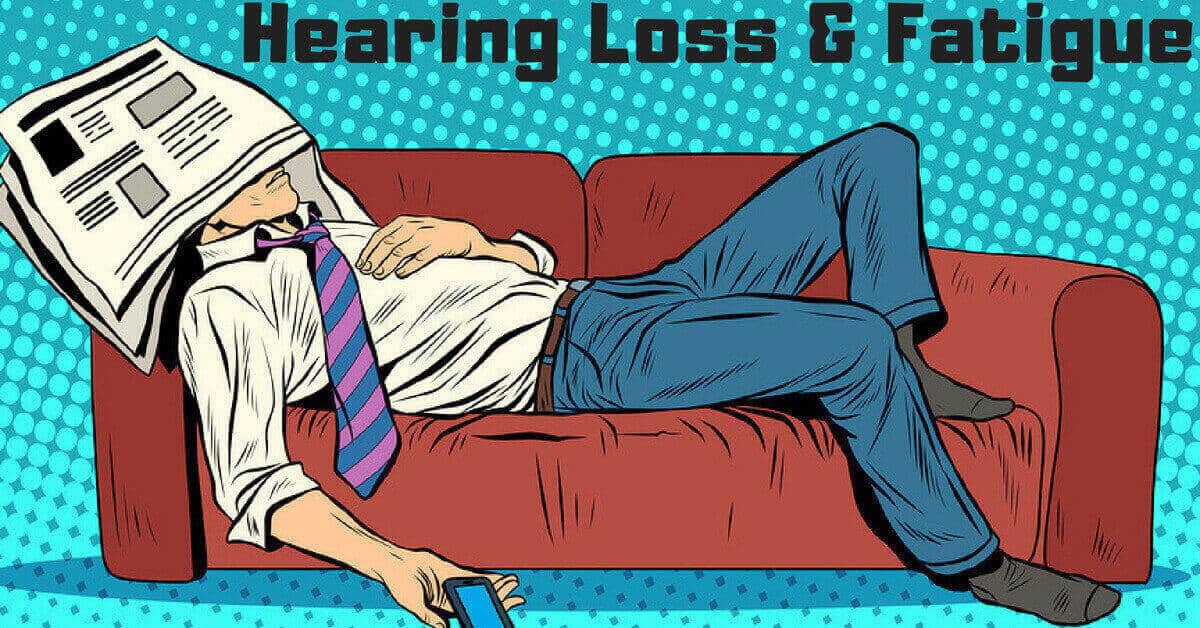
Anyone with untreated hearing loss can sympathize with this experience. You have been engaged in conversation with a number of people at a part or social gathering, some of who spoke loudly and others who spoke softly, such as children and those who talk in a high register. After straining to hear so many people for this time, you feel like you can barely make it home in one piece. Perhaps you even find yourself feeling exhausted in the middle of the party. You might be tempted to go home early because you have had such a fatiguing experience. It is said that one way to identify if someone is introverted or extroverted is to see how they feel after a party. Introverts come home tired and ready for bed, but extroverts tend to be energized, and some can’t fall asleep for hours due to the social stimulation they experienced. And yet, even an extrovert with hearing loss may come away from an otherwise enjoyable social event with profound fatigue.
In this article we’ll be looking at the relationship between hearing loss and fatigue, one that has been clinically proven and reported by many sufferers of hearing loss. Although the relationship is a significant one, some of the following tips will help reduce fatigue related with hearing loss.
Periodic and Chronic Fatigue
The causes of the two main types of fatigue make them quite different from one another. In one case a particular cause may bring on fatigue. We have all experienced periodic fatigue, such as the feeling of exhaustion after returning from a long day of work or after exercising. The experience described above is an example of periodic fatigue, when a particular incident or event brings on the feeling of fatigue. In the other instance, some people experience chronic fatigue that does not go away. Even after things that should be energizing, such as sleep, healthy eating, or moderate exercise, those who suffer from chronic fatigue remain exhausted.
Hearing loss is associated with both types of fatigue. In the experience described above, the party is a cause of periodic fatigue. Straining to understand can bring on fatigue that would not otherwise be experienced. On the other hand, the brain has to struggle to make sense of the world without proper hearing, resulting in a constant workload for the body and mind. This unending work to make sense from fragments of sound can result in chronic fatigue.
Fatigue Reduction Tips
Some simple things can help reduce fatigue in general. First, be sure to get those energizing supports when you can. Adequate sleep, healthy foods, and moderate exercise are crucial to your energy levels. Many people find benefits from supplements such as Vitamins D and B12, Ashwagandha, Cordyceps, and Ginseng. Try to keep technology away from your bed, as well. Screens on smart phones, tablets, and computers viewed right before you sleep can cause sleepless nights and fatigued days, only exacerbated by difficulties hearing.
Hearing-related fatigue requires other kinds of support. Try to limit your exposure to very noisy sounds, which may add to hearing loss itself. Also, beware of raising the levels of televisions and radios to a very high level. Even though it might seem right to you, the stress load coming from very noisy electronics can add to your exhaustion. When possible, take a break from experiences that demand your careful hearing. Take a nap or simply get some quiet time alone to recharge without demands on your ears. If you are able, you may even want to put in earplugs, earmuffs, or noise cancelling headphones to relieve your ears of the need to strain to make sense of the world. It may seem counter intuitive that earplugs might help someone with hearing loss, but they can give your working mind just the break it needs.
Visit Us at Pacific Northwest Audiology
The most effective thing you can do to reduce hearing-related fatigue is to get treatment! With properly used hearing aids in place, you will be surprised how much less fatiguing an average day will be for you, as well as those events when you have a significant hearing load expected of you, such as a party. Talk to our team at Pacific Northwest Audiology to have your hearing tested and to find out if hearing aids are appropriate for you. They just might make a world of difference!
